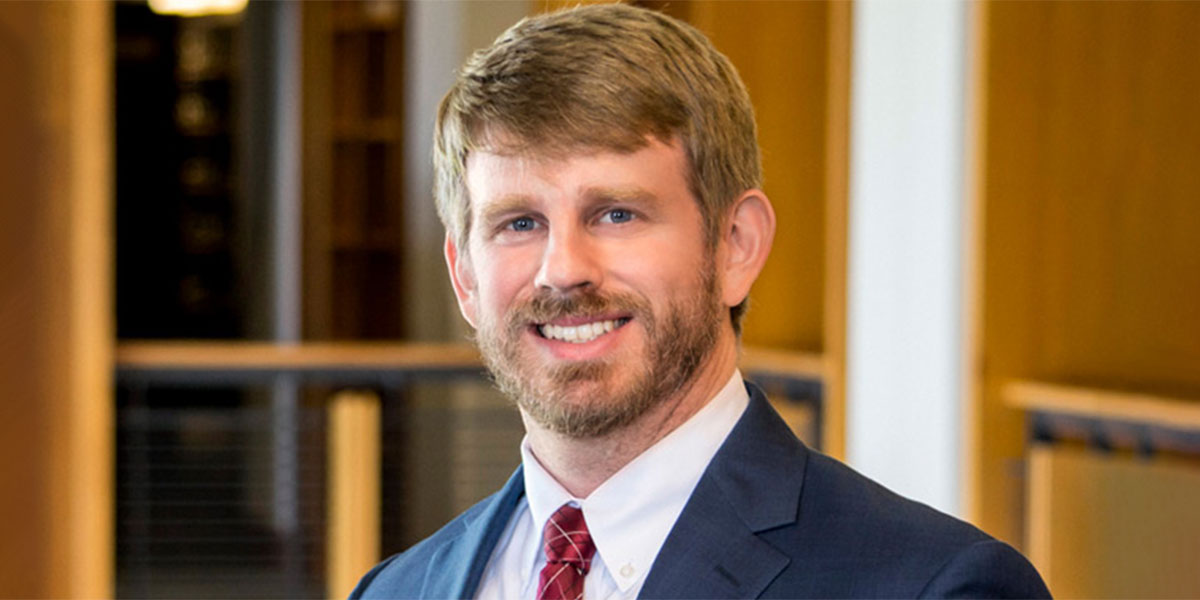Meet Baylor’s expert on the intersection of psychology and law

How do you determine whether or not a person acted “reasonably”? If you accept that many people will have different definitions of what constitutes reasonableness, you can recognize the sorts of challenges that lawyers face when addressing a jury.
Baylor Law professor Christopher Jaeger conducts his work at the intersection of psychology and the law, applying his research to uncover new insights surrounding such questions. Dr. Jaeger is the rare law professor who pairs his J.D. with both undergraduate and doctoral degrees in psychology — and his interdisciplinary research is drawing notice.
Last fall, Jaeger was named co-winner of the Association of American Law Schools’ (AALS) highly competitive Scholarly Papers Competition. His research addressed a key issue in tort law: the way jurors interpret “reasonableness,” examining key theories surrounding the idea in legal scholarship. One key finding is that jurors are disproportionately influenced by the riskiness of an individual’s behavior — providing lawyers with insights into the nuances they might need in addressing juries.
In addition to his AALS award, Jaeger has been highly published in journals ranging from Yale Law Journal to the Journal of Experimental Psychology: Human Perception and Performance. He also serves on the editorial board of Psychology, Public Policy & Law, published by the American Psychological Association.
“I am very interested in the way law bakes in beliefs, and oftentimes misbeliefs, about the human mind,” Jaeger said on a recent episode of the Baylor Connections podcast. “So, can we identify some of those misbeliefs and potentially come up with ways to bring the law better into alignment with things that we do know about how the human mind works, and how people make decisions and act in the world?”
It’s a rhetorical question that Jaeger answers affirmatively through his work.
Sic ’em, Dr. Jaeger!

